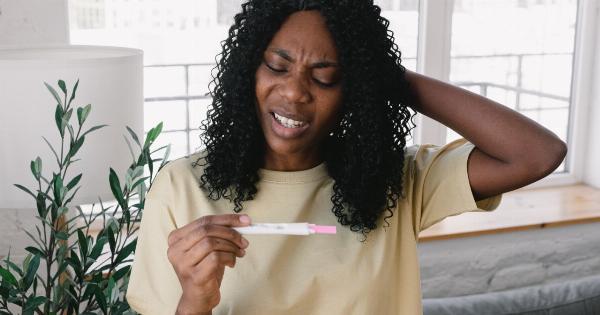Braxton Hicks contractions, also known as practice contractions, are the tightening or contracting of the uterus muscles that typically occur during pregnancy.
These contractions usually start during the second trimester but become more frequent and intense in the third trimester, closer to labor and delivery. These contractions are not the same as labor contractions and do not indicate the onset of labor.
What Causes Braxton Hicks Contractions?
The exact cause of Braxton Hicks contractions is unknown. However, some factors may trigger or increase the frequency and intensity of these contractions:.
- Dehydration
- Full bladder
- Strenuous physical activity
- Sexual intercourse
- Heavy lifting
- Change in position
- Stress or fatigue
How to Identify Braxton Hicks Contractions?
Identifying Braxton Hicks contractions can be tricky, especially for first-time moms. Here are a few signs and symptoms to differentiate them from labor contractions:.
- Irregular contractions that don’t follow any pattern
- Do not increase in frequency, intensity, and duration over time
- Do not cause cervical dilation or effacement
- Discomfort or mild pain in the abdominal or pelvic region
- Relaxation or disappearance after changing position, urinating, or drinking water
When to Call the Doctor?
If you experience any of the following symptoms along with Braxton Hicks contractions, contact your healthcare provider immediately:.
- Vaginal bleeding or discharge
- Regular contractions that increase in frequency, intensity, and duration
- Decreased fetal movement
- Severe pelvic pressure or pain
- Fever or chills
How to Manage Braxton Hicks Contractions?
Although Braxton Hicks contractions are normal and usually don’t require medical attention, you can take some measures to manage them:.
- Drink plenty of water and fluids to prevent dehydration
- Empty your bladder frequently to avoid pressure on the uterus
- Rest and avoid strenuous physical activity
- Change your position or take a warm bath to relieve discomfort
- Practice relaxation techniques like deep breathing and visualization
Conclusion
Braxton Hicks contractions are a natural part of pregnancy and are considered a sign of preparing the uterus for labor and delivery. Although they may cause discomfort, they are usually harmless and nothing to worry about.
However, if you experience any concerning symptoms, don’t hesitate to contact your healthcare provider.

























